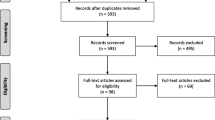Abstract
Adherence to antiretroviral therapy (ART) is critical to achieving viral suppression. However, social determinants of health (SDoH) can undermine patient adherence to ART, resulting in drug resistance that compromises future treatment options. We assessed ART adherence and HIV-1 drug resistance at the national and state levels in the US and investigated their associations with SDoH and other HIV-related outcomes. Data were obtained from Symphony Health’s Integrated Dataverse (IDV), Monogram/LabCorp Database, as well as national and publicly available databases, including Centers for Disease Control and Prevention (CDC), American Community Survey (ACS), and J. Kaiser Family Foundation (KFF). Inferential analyses were performed to investigate associations using patient-level data, and the results were reported by state and overall within the nation. Correlations between continuous variables were estimated by the Spearman’s test, and that between continuous variable and categorical variable were estimated using one-way analysis of variance (ANOVA). State-level rates of poor adherence and resistance ranged from 26 to 55% and 20 to 54%, respectively. Female gender, non-white race, low education, poverty, and unemployment were associated with poor adherence; female gender was associated with drug resistance. Both adherence and resistance were correlated to HIV prevalence rates. Our findings suggest that US patients living with HIV face great challenges associated with poor ART adherence and HIV-1 drug resistance.



Similar content being viewed by others
References
CDC. Today’s HIV/AIDS epidemic. CDC fact sheet (2016).
Gunthard HF, Saag MS, Benson CA, et al. Antiretroviral drugs for treatment and prevention of HIV infection in adults: 2016 recommendations of the international antiviral society-USA panel. JAMA. 2016;316(2):191–21010.
SSG Insight Start Study Group, Lundgren JD, Babiker AG, et al. Initiation of antiretroviral therapy in early asymptomatic HIV infection. N Engl J Med. 2015;373(9):795–807.
Danel C, Moh R, Gabillard D, et al. A trial of early antiretrovirals and isoniazid preventive therapy in Africa. The New England Journal of Medicine. 2015;373(9):808–22.
UNAIDS. HIV Global Statistics. 2018. https://www.hiv.gov/hiv-basics/overview/data-and-trends/global-statistics.
Ritchwood TD, Bishu KG, Egede LE. Trends in healthcare expenditure among people living with HIV/AIDS in the United States: evidence from 10 years of nationally representative data. Int J Equity Health. 2017;16(1):188–188.
U.S. Department of Health & Human Services. Statement on FY2020 budget proposal for ending the HIV epidemic in America 2019. https://www.hhs.gov/about/news/2019/03/11/statement-on-fy2020-budget-proposal-for-ending-the-hiv-epidemic-in-america.html.
HIV.gov. What is 'ending the HIV epidemic: a plan for America'? 2019. https://www.hiv.gov/federal-response/ending-the-hiv-epidemic/overview.
National Center for HIV/AIDS. Understanding the HIV care continuum. 2018. https://www.cdc.gov/hiv/pdf/library/factsheets/cdc-hiv-care-continuum.pdf.
Onoya D, Nattey C, Budgell E, et al. Predicting the need for third-line antiretroviral therapy by identifying patients at high risk for failing second-line antiretroviral therapy in South Africa. AIDS Patient Care STDs. 2017;31(5):205–12.
Nachega JB, Marconi VC, van Zyl GU, et al. HIV treatment adherence, drug resistance, virologic failure: evolving concepts. Infect Disord Drug Targets. 2011;11(2):167–74.
Pennings PS. HIV drug resistance: problems and perspectives. Infect Dis Rep. 2013;5(Suppl 1):e5.
Rudy BJ, Murphy DA, Harris DR, Muenz L, Ellen J, Hivai ATN. Patient-related risks for nonadherence to antiretroviral therapy among HIV-infected youth in the United States: a study of prevalence and interactions. AIDS Patient Care STDS. 2009;23(3):185–94.
Kleeberger CA, Phair JP, Strathdee SA, Detels R, Kingsley L, Jacobson LP. Determinants of heterogeneous adherence to HIV-antiretroviral therapies in the Multicenter AIDS Cohort Study. J Acquir Immune Defic Syndr. 2001;26(1):82–92.
Do HM, Dunne MP, Kato M, Pham CV, Nguyen KV. Factors associated with suboptimal adherence to antiretroviral therapy in Viet Nam: a cross-sectional study using audio computer-assisted self-interview (ACASI). BMC Infect Dis. 2013;13:154.
Poles G, Li M, Siril H, et al. Factors associated with different patterns of nonadherence to HIV care in Dar es Salaam, Tanzania. J Int Assoc Provid AIDS Care. 2014;13(1):78–84.
Beer L, Skarbinski J. Adherence to antiretroviral therapy among HIV-infected adults in the United States. AIDS Educ Prev. 2014;26(6):521–37.
EACS. European AIDS Clinical Society Guidelines 2017, 2017.
Iacob SA, Iacob DG, Jugulete G. Improving the adherence to antiretroviral therapy, a difficult but essential task for a successful HIV treatment-clinical points of view and practical considerations. Front Pharmacol. 2017;8:831.
Lafeuille MH, Woodruff K, Dunn K, et al. Adherence to antiretrovirals (ARVs) in medicaid-insured patients living with human immunodeficiency virus (HIV). Presented at the Academy of Managed Care Pharmacy (AMCP) managed care & specialty pharmacy annual meeting, March 27–30, 2017, Denver, Colorado.
Forlenza J, Brown K, Shprecher A, et al. An evaluation of patient characteristics, duration on antiretrovirals (ARVs) and adherence in a large, insured United States population receiving HIV treatment between 2010 and 2014. Open Forum Infect Dis. 2015;2(Suppl 1):416.
McClung RP, Saduvala N, Oster AM, Heneine W, Johnson JA, Hernandez AL. Integrase and other transmitted HIV drug resistance: 23 US jurisdictions, 2013–2016, March 4–7, 2019, Seattle, Washington.
Kim J, Lee E, Park BJ, Bang JH, Lee JY. Adherence to antiretroviral therapy and factors affecting low medication adherence among incident HIV-infected individuals during 2009–2016: a nationwide study. Sci Rep. 2018;8(1):3133.
Rachlis B, Burchell AN, Gardner S, et al. Social determinants of health and retention in HIV care in a clinical cohort in Ontario, Canada. AIDS Care. 2017;29(7):828–37.
Morowatisharifabad MA, Movahed E, Farokhzadian J, et al. Antiretroviral therapy adherence and its determinant factors among people living with HIV/AIDS: a case study in Iran. BMC Res Notes. 2019;12(1):162.
Bradley ELP, Frazier EL, Carree T, Hubbard McCree D, Sutton MY. Psychological and social determinants of health, antiretroviral therapy (ART) adherence, and viral suppression among HIV-positive black women in care. AIDS Care. 2019;31(8):932–41.
Funding
This study was supported by Janssen Scientific Affairs, LLC.
Author information
Authors and Affiliations
Corresponding author
Ethics declarations
Conflict of interest
C. Benson, K.J. Dunn, E.Y. Wong, W. Chow, H. Hardy, J. Song, and K. Brown are employees of Janssen and may be stockholders in Johnson & Johnson.
Additional information
Publisher's Note
Springer Nature remains neutral with regard to jurisdictional claims in published maps and institutional affiliations.
Rights and permissions
About this article
Cite this article
Benson, C., Wang, X., Dunn, K.J. et al. Antiretroviral Adherence, Drug Resistance, and the Impact of Social Determinants of Health in HIV-1 Patients in the US. AIDS Behav 24, 3562–3573 (2020). https://doi.org/10.1007/s10461-020-02937-8
Published:
Issue Date:
DOI: https://doi.org/10.1007/s10461-020-02937-8




